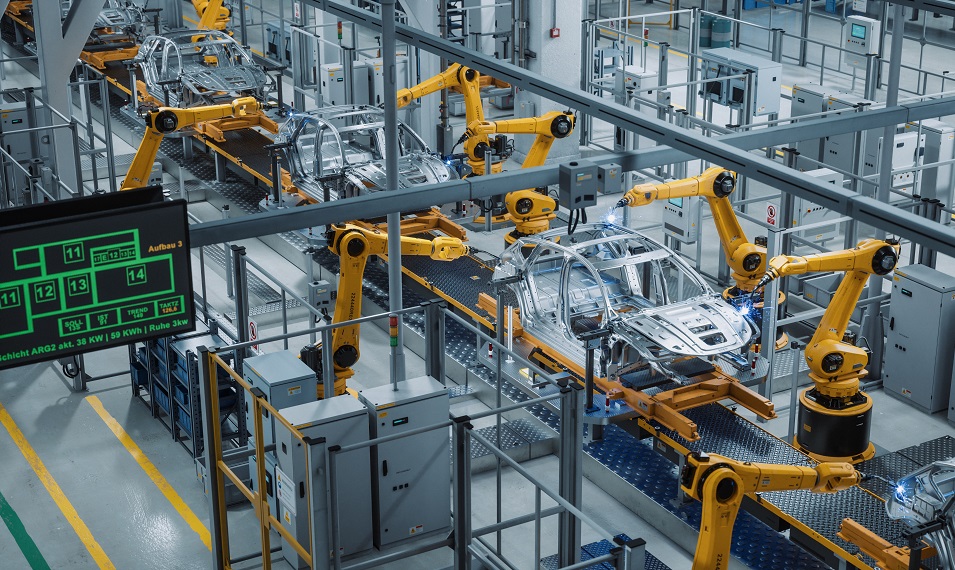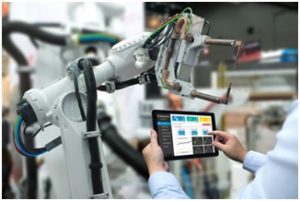
Electrical Automation Technology is gaining prominence in manufacturing and processing facilities around the globe. Products are created more efficiently, with less human error, and at less cost. Although automation eliminates some types of jobs, it creates others.
It is part of the third industrial revolution that has laid the foundation for the fourth industrial revolution – the smart factory. Automation excels when it can obtain data, process it, and use it as a type of ‘raw material’ in production processes.
Electrical automation technology is also found in the home and office which makes life easier for us. Everything from controlling household functions to advanced alarm systems. This field is growing jobs worldwide and presents new opportunities for anyone trained for success in it.
The Purpose of Electrical Automation Technology

Electrical automation streamlines production systems and their controls to create a more effective working environment. As more companies see the purpose and benefits of automating their processes, they adopt the latest technologies to take advantage of them. Its significant benefits include:
- Decreased cycle times
- Improved productivity
- Improved product quality
- Safer employee work environment
- Increased bottom-line profit
- Increased competitiveness
Fewer products need to be reworked that resulting in less wasted materials. As plants increase automation, employee injuries and time off work go down. Although automation technology is costly to incorporate into production, its initial expense is generally recouped within six months. If you are interested in working in this career, you should read on.
Five Types of Automation
The type of automation depends on the industry, company, and products they produce. There are five types of automation in use today that produce higher-quality products:
- Computer-Aided Manufacturing uses computers in the planning, control, and production of manufactured goods. It is also used for automated scheduling and manufacturing flow analysis.
- Flexible Manufacturing Systems combine numerically-controlled machines, robots, and other automation devices into one automation system.
- Industrial Automation Technology is used to perform work that is repetitive, dangerous, and unsuitable for humans.
- Industrial Robots can work 24/7/365 to keep up with production. Their efforts produce higher quality parts, reduced cycle times, and fewer defects. Some robots can weld, handle materials, assemble products, paint, and stack products on pallets.
- Numerically Controlled (NC) Machines use computers to calculate, store, and carry out manufacturing operations that are typically done by hand.
Where Electrical Automation Technology Is Used
Electrical automation technology is becoming widely used in today’s homes, offices, and industries. Here are some common examples for anyone interested in this career.
- Home Use – Appliance controlling adapters, garage opener apps, home consoles, automated kitchens
- Office Use – Self-parking robot systems, scheduling apps, advanced alarm systems
- Personal Use – Robotic gas pumps, texting apps, self-parking automobile features
- Commercial – Machining parts, inspecting quality, painting products
Other places where its use is growing include transportation, utilities, defense facilities, and mining operations. The automotive industry probably uses automation more than any other.
|
“As more companies see the purpose and benefits of automating their processes, they adopt the latest technologies to take advantage of them.” |
Robotics Technology Is Part of Today’s Factory Automation

When it comes to industrial automation, robotics is a major player. Two types of applications dominate today’s manufacturing and processing; repetitive and flexible. Repetitive includes handling menial and boring tasks such as material handling and assembly. Robots can do this work faster while improving quality.
Flexible automation consists of robots paired with other technologies that can adapt to different parts and products. They work with limited shutdown and reprogramming time. Some companies pair flexible automation with remote monitoring and programming to work off-site. Their use will continue to increase as artificial intelligence becomes more sophisticated. Using advanced robotics allows many companies to be more competitive in a worldwide market.
Jobs In Many Different Industries
The nice thing about working with electrical automation technology is that it applies to many different industries. Examples of jobs you may work in with technical training include:
- Control Engineering Technicians assist with designing and overseeing the development of control systems.
- Embedded Systems Engineering Technicians develop software and hardware for embedded systems.
- Systems Integration Specialists work in teams to design and implement complex technical solutions.
- Network Engineering Technicians design, implement and maintain network systems with the router, switch, and wireless network technologies.
Electrical automation technology is a fascinating and rewarding career. Contact us now if you want to know more about training and education that lead to an associate degree.
For more information about graduation rates, the median debt of students who completed the program, and other important information, please visit our website at: https://iticollege.edu/disclosures/

